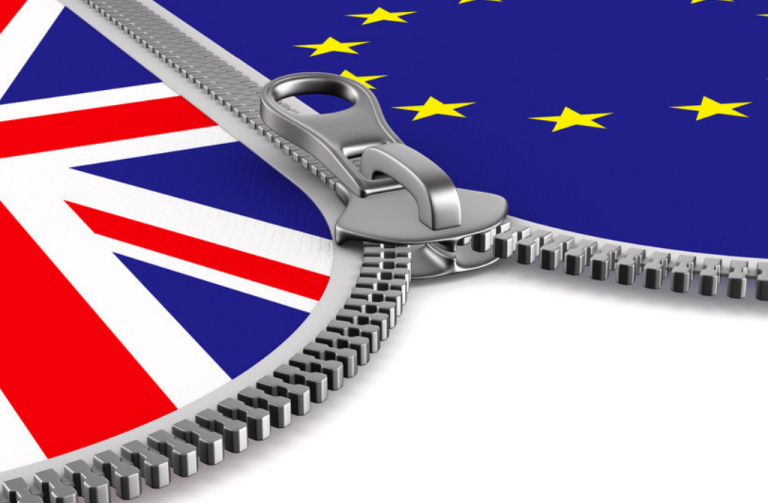Read our Manifesto for Business
by Cumbria Chamber of Commerce
FOREWORD
 From Rob Johnston, Chief Executive of Cumbria Chamber of Commerce
From Rob Johnston, Chief Executive of Cumbria Chamber of Commerce
It has been two-and-a-half years since the last General Election and, in that time, little has changed.
Businesses have spent time and money preparing for Brexit deadlines on March 29th and October 31st, only to see our departure delayed.
We still don’t know if, or when, Brexit will happen.
This uncertainty weighs heavy and is depressing growth. Many firms are holding back on investment, unable to plan ahead.
Meanwhile, Parliament’s focus on Brexit has been at the expense of other areas such as energy policy, infrastructure and the skills agenda.
Many businesses have lost trust in the ability of politicians to resolve challenges – and many have a real sense that they are not being heard.
So as the UK prepares to go the polls again, Cumbria Chamber has been working with British Chambers of Commerce and the other 52 accredited Chambers across the country to draw up a business manifesto setting out priorities for the next government.
It confronts issues that are critical to businesses in Cumbria around Brexit, staff recruitment and skills, transport, digital and energy infrastructure, international trade, and business investment and costs.
You can read the document below.
No political party can rebuild and transform the economy without a partnership with businesses.
Together, we can create positive solutions to collective challenges.
Successful businesses create jobs and boost receipts to the Exchequer. When businesses thrive, people and communities thrive too.
ROB JOHNSTON, MBE, FCIM
Chief Executive, Cumbria Chamber of Commerce
BREXIT
 The Chamber has never taken a stance for or against Brexit. We know that the issue divides businesses, just as it divides the public.
The Chamber has never taken a stance for or against Brexit. We know that the issue divides businesses, just as it divides the public.
Our aim is to act as an honest broker to help businesses navigate Brexit, whatever form it takes.
In the run up to the October Brexit deadline, more than 2,600 businesses have visited the Brexit help pages on Cumbria Chamber’s website while 1,000 spoke to our Brexit advisers or attended our Brexit workshops.
We believe that Cumbria businesses are better prepared now than was the case only a few weeks ago.
That said, some have told us that uncertainty around Brexit led them to pause investment or hold back on hiring staff.
And we’ve been clear that leaving the EU without a deal – and therefore with no transition period – would be disruptive and undesirable. A British Chambers survey reveals that 24% of firms would cut investment in the event of a no-deal Brexit – only 4% would invest more.
Priorities for the next government:
- Do not leave the European Union without a deal.
- Close remaining information gaps for all Brexit scenarios.
- Ensure the smoothest possible shift from a transition period to the future UK/European Union relationship, allowing enough time for businesses to plan.
- Clarify the future direction of devolution to the nations and regions, as each stand to be affected as powers and regional development funding return to the UK.
- Introduce a simple, fast, flexible and affordable immigration system that minimises the administrative burden on businesses.
- Allow access within the immigration system to all skill levels – including temporary, seasonal and permanent roles – with recognition of professional qualifications.
- Clarify the UK Shared Prosperity Fund – and how it will deliver a UK regional funding system that has maximum local autonomy when European structural and investment funds cease in the UK.
- Secure the future of the UK-European Union trading relationship, minimising cross-border trade frictions and avoiding a hard border with Ireland.
- Ensure continuity of trading conditions with third countries so that businesses can continue to benefit from the levels of market access that they have had under European Union free trade agreements.
- Introduce a temporary SME Brexit tax credit to support businesses that need to undertake specific activity to adjust to changes in trading conditions.
- Upscale HMRC Time To Pay arrangements to deal with the expected increase in applications.
PEOPLE
 Businesses are finding it increasingly difficult to recruit, retain and develop people with the appropriate skillset.
Businesses are finding it increasingly difficult to recruit, retain and develop people with the appropriate skillset.
This is especially true in Cumbria where our working-age population is shrinking. South Lakeland and Eden already have the lowest unemployment rates in the UK.
We’re aware of acute staff shortages in Cumbria in engineering, construction, transport and logistics, and the hospitality sector.
Businesses are concerned that this tight labour market could be exacerbated by future restrictions on EU migrant workers.
We’ve spoken to hotels in the Lake District where migrants make up to 65% workforce. Some told us they might have to close if the supply of migrant workers is turned off.
One way to address labour shortages is to boost productivity.
If the UK’s labour force was as productive as other G7 countries, our economy would be £338bn bigger than it is today.
We also need to address the decline in apprenticeships – there was a 23% fall in the number of apprenticeship starts in Cumbria last year.
And we’re still waiting for details of the UK Shared Prosperity Fund, which will replace EU structural funds after Brexit. This money underpins much of the business support delivered by our Cumbria Business Growth Hub.
Priorities for the next government:
- Increase funding for apprenticeships to ensure SMEs can access training, at all skill levels, in their local area.
- Ensure businesses have access to relevant apprenticeship qualifications and reform the Apprenticeship Levy in England to allow businesses to use all forms of accredited training.
- Raise the base rate of funding for further education among 16-to-18 year olds in England, commit long-term funding for T-levels and increase flexibility and financial support for businesses delivering high-quality T-level work placements.
- Increase the budget for adult education in England to fully fund economically valuable entry-level courses.
- Set out a long-term strategy and funding for lifelong learning, enabling people to upskill, retrain and adapt to technological changes in the workplace.
- Deliver career advice services for all ages and incentivise schools to promote vocational and technical routes.
- Reform and simplify family policies to reduce complexity and help businesses manage the costs, without compromising the support provided.
- Help bridge the gap between parental leave and children starting school by simplifying access to childcare funding and providing a flexible and universal childcare entitlement.
- Fund workplace adaptations to help employers retain and support employees experiencing ill health.
- Fund the upskilling and reskilling of employees impacted by changes to supply chains.
- Ensure the education and skills system prepares people for work in a net-zero emissions economy.
- Ensure clarity and transparency on skills devolution and future access to the UK Shared Prosperity Fund.
- Allow greater flexibility for communities to focus skills and training funding on local needs.
INFRASTRUCTURE
 Poor infrastructure is increasing the cost of doing business.
Poor infrastructure is increasing the cost of doing business.
When we consulted Cumbrian businesses on transport issues last year, 62% said traffic congestion was a problem while 75% were dissatisfied with the rail service – with the Northern rail franchise in particular.
There was also dissatisfaction with the standard of road maintenance.
Inadequate transport infrastructure increases costs for businesses and reduces productivity. Slow broadband and mobile phone ‘notspots’ are also hindrances that stop businesses from realising their potential.
The lack of a coherent energy strategy threatens to undermine the ambitions of all the main parties to create a carbon-neutral economy.
Lack of clarity over the funding model for nuclear new build led to the collapse of NuGen’s plan for a nuclear power station at Moorside in Cumbria.
Cumbria has huge potential to contribute low-carbon energy through nuclear new build, expansion of offshore wind and tidal power in Morecambe Bay, the Duddon Estuary and Solway Firth.
Priorities for the next government:
- Complete the legal frameworks for all phases of HS2, deliver promised investment in Northern Powerhouse Rail and proceed to deliver a UK-wide high-speed rail network as soon as possible.
- Reaffirm support for private investment in the third runway at Heathrow.
- Airport and other important major transport projects.
- Commit funding to bring local roads back up to scratch – quickly.
- Reform planning rules to support the deployment of 5G mobile signal infrastructure.
- Attract more private investment into public infrastructure by introducing a replacement for the Private Finance Initiative.
- Strengthen national planning guidelines in England to protect land for business and employment.
- Commit to an energy strategy that helps us achieve this target, while maintaining affordable and reliable energy for businesses.
- Ensure more devolved decision-making on infrastructure schemes of regional importance in England.
- Provide a real say for businesses in local decision-making on infrastructure, not tick-box consultation.
INTERNATIONAL TRADE
 Global economic conditions are weakening and there is a growing trend of protectionism.
Global economic conditions are weakening and there is a growing trend of protectionism.
The World Trade Organisation is forecasting world trade growth of just 1.2 per cent this year, less than half that recorded last year.
UK exporters not only face these headwinds but also uncertainty around Brexit, with one-in-two considering it a barrier.
That said, there is tremendous potential in emerging economies such as India where Cumbria Chamber has been working with the British Deputy High Commission in Chennai to maximise opportunities for Cumbrian businesses.
If the Government is prepared to work with the International Chamber network, which has a presence in more than 100 countries, we can help UK companies realise this potential.
Priorities for the next government:
- Commit to working with Chambers to link UK businesses to customers and opportunities worldwide, leveraging the BCC’s rapidly growing Global Business Network.
- Revitalise trade support programmes, develop an expanded trade mission and trade show programme and fund long-term frontline, practical and face-to-face support for exporters.
- Introduce a tax credit for exporters to help them manage the costs and risks of entering new markets, covering a limited range of activities including research, setup, trade missions and shows.
- Establish a true partnership between government and business for the development of future trade policy, including a ‘room-next-door’ mechanism in trade negotiations to ensure the immediate inclusion of high-quality business expertise.
- Commit to negotiating tariff reductions for environmental goods and services in future trade agreements.
- Commit to keeping trade support regional and not moving towards a one-size-fits-all national approach in England – and to delivering better coordination between trade support programmes across the UK.
BUSINESS INVESTMENT AND COSTS
 We are facing the longest period of sustained annual decline in business investment for 17 years.
We are facing the longest period of sustained annual decline in business investment for 17 years.
Business investment has fallen in five out of the last six quarters.
Brexit uncertainty has taken its toll but rising costs have also negatively impacted on business cash flow and investment.
We have some of the highest recurrent business property taxes in the world, the National Minimum Wage is rising faster than inflation and employers’ minimum auto-enrolment pension contributions increased to 3% in April.
Lack of access to external finance is also a barrier to investment, with 21 per cent of businesses citing this as an issue when funding new activities.
Easing the cost of doing business would help UK businesses to invest, recruit and grow – particularly during this time of uncertainty.
Priorities for the next government:
- Extend the £1m Annual Investment Allowance for a further two years and widen its scope.
- Commit to protecting tax relief schemes that incentivise investment – the Seed Enterprise Investment Scheme (SEIS) and the Enterprise Investment Scheme (EIS).
- Reverse the 2017 reduction in the dividend allowance, which is hurting small businesses and sole traders.
- Launch a business-led review of the business rates system in England – and, in the meantime, introduce a business rates investment incentive for England and Wales, providing a 12-month delay before rates are applied to a new build property or before rates are increased when an existing property is expanded or improved.
- Introduce a moratorium on measures that increase business costs for the next term of parliament, excluding only evidence-based changes to the National Living Wage.
- Enable the British Business Bank to play a greater role in the provision of patient capital by upscaling the British Patient Capital programme to enable long-term investment in businesses across the UK.
- Commit to keeping the VAT rate for items considered to be ‘energy-saving materials’ at five per cent or lower post-Brexit.
- Expand the British Business Bank to play a greater role in improving the quality and reach of early-stage finance to high-growth businesses beyond London and the South East.



